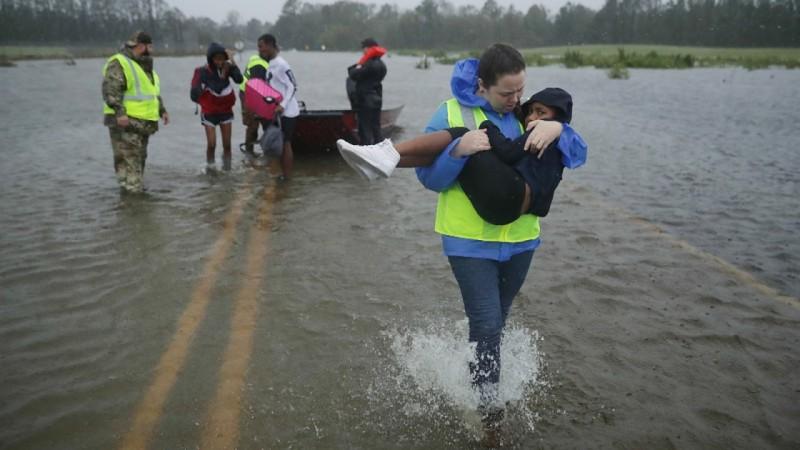
The devastating hurricane Forence has hit the East Coast, especially the people in North and South Carolina, who are still struggling with its aftermath. As thousands of residents had to evacuate their homes due to severe floods that followed, the calamity has claimed 32 lives and left around 500,000 homes and businesses without power.
Even the Philippines was recently hit by a humongous category-5 typhoon, Mangkhut. Many people have died or have gone missing since the typhoon slammed the northern Philippine province of Luzon on Saturday. The death toll and the extent of destruction is just rising by the day. Why is the mother Earth experiencing such events so frequently? Well, the answer lies in climate change.
According to experts, the hotter the planet is, the deadlier the hurricanes become. The storms now appear more destructive because climate change has already caused the rise of sea level. Of late, the storms are hitting us more often and pouring more rain than ever.
Every other study points out that climate change makes the storms worse. However, the connection is not so simple. The Associated Press reported that they have consulted 17 meteorologists and scientists, who work on climate change, hurricanes and or both. While a few of them said that global warming can't be attributed to a single event or catastrophe, most of the experts said that the humans play a major part in creating the storms, such as the latest Florence hurricane.
According to the dean of school on environment at the University of Michigan, Jonathan Overpeck, Florence is just another example of "human-supercharged storms" and these are becoming more and more common as well as "destructive" because the planet's temperature is increasing continuously. This risk looms beyond the Atlantic Ocean and the example is, Typhoon Mangkhut, which hit the Philippines.
Previously, scientists refrained from connecting climate change with particular natural disaster. However, over the past few years, researchers have made use of latest technologies and newer methods of study to determine how things would be different in a planet without man-made climate change and global warming. It's like "Back to the Future," where you alter the reality in the past change the future. Just a few months after hurricane Harvey hit, researches showed that global warming has mainly increased the chances of heavy rains that Harvey caused.
"I think we can say that the storm is stronger, wetter and more impactful from a coastal flooding standpoint than it would have been BECAUSE of human-caused warming. And we don't need an attribution study to tell us that in my view. We just need the laws of thermodynamics," Pennsylvania State University climate scientist Michael Mann told AP.
So, basically the scientists have more than one reason to point their fingers at humans for the disasters like Florence and Mangkhut. For every degree increase in the air's temperature, it can hold up to 4% more water. It also offers measurably more energy to boost the storm.
According to Weather Underground meteorology director Jeff Masters, in case of Florence, it is very likely that because of the climate change the ocean got warmer and caused the heavy rainfall and it was more destructive than it could have been without the global warming.
While some experts say that there are several factors in play and it's difficult to blame global warming alone for the storms, many believe that we should look at the overall situation of the planet and think about it more seriously.

















